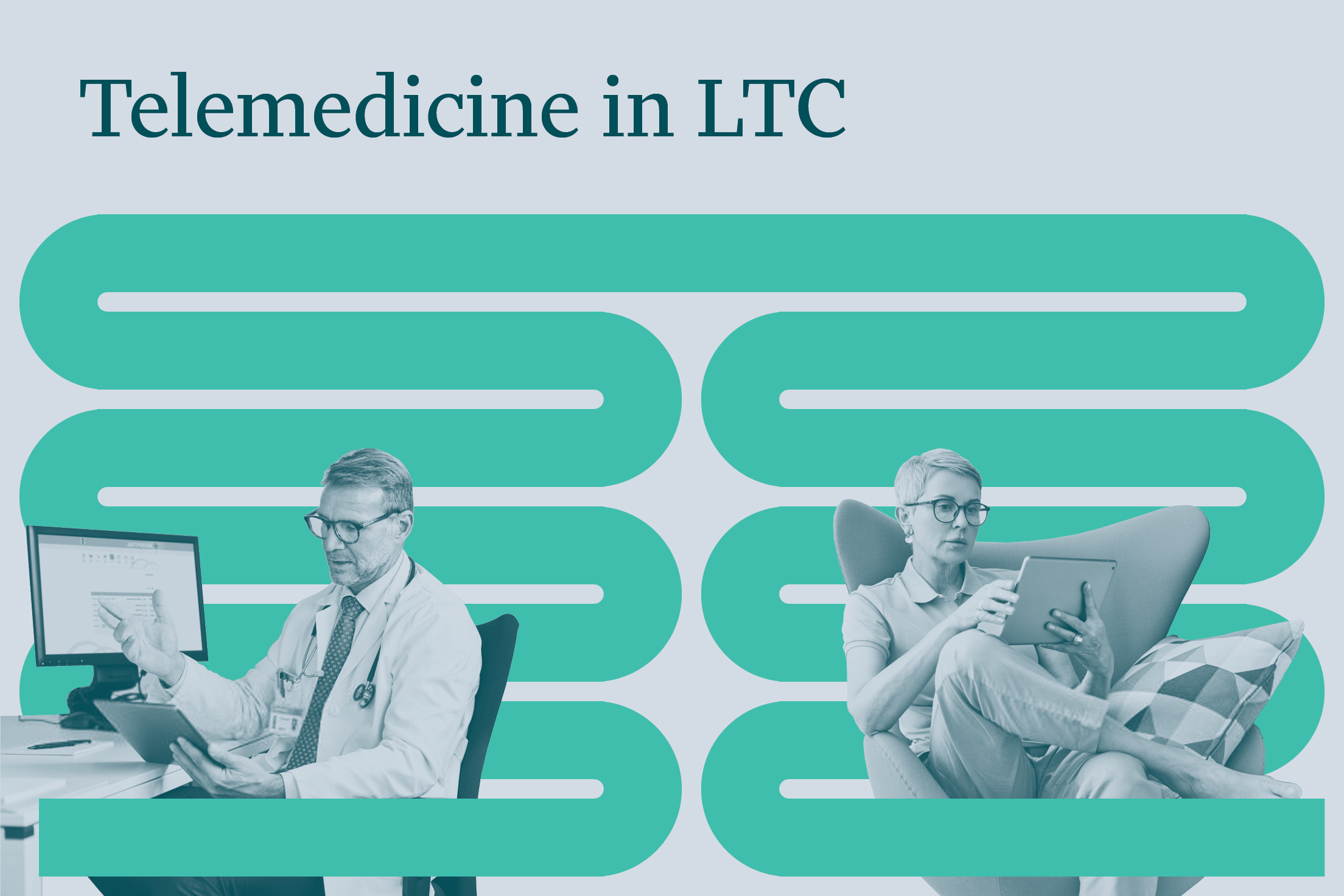Launching new technology takes dependable partners
By 2030, the number of Americans requiring long-term care (LTC) is expected to reach approximately 19 million people. This projection places the burden on LTC facilities to constantly evaluate innovative ways to optimize the delivery of quality care for a growing patient population. Factor in pandemic challenges and stricter readmission penalties, and the need for cost-effective, patient-centered solutions has never been greater.
Table of Contents
Pandemic Responsible for Telemedicine Innovation and Utilization
In response to the spread of COVID-19, federal authorities made sweeping changes to improve telemedicine access, primarily to reduce exposure and infection.
Exempting nursing homes from having to apply for a waiver to use telemedicine services made widespread adoption possible. Before this waiver, it was difficult for LTC managers to justify telemedicine expenses Medicare wasn’t set up to support.
According to McKnights, “The use of Medicare visits conducted through telehealth skyrocketed 63-fold during the pandemic, to 52.7 million in 2020 from 840,000 in 2019.”
Now, the barriers to reimbursement have been lifted. Possibly for good.
In that time, the industry discovered the many benefits of telemedicine beyond keeping susceptible aging populations safe. It evolved into the go-to solution for delivering advanced oversight from medical care providers, resulting in improved performance metrics and reduced readmissions.
For LTC operators, missing out on telemedicine innovation means missing out on the following benefits:
2 BIG Ways Telemedicine Benefits Long-Term Care
1. Reduced Readmissions
- Immediate access to clinician oversight can prevent a patient episode from escalating.
- Remote patient monitoring technology offers real-time data to off-site care teams.
- Preventing traumatic emergency trips to the hospital can result in improved quality-of-care performance metrics.
2. Improved Patient Experience
- Easy access to care empowers patients to have more control of their health.
- Families can be tied into calls in real-time, wherever they are—no delays in authorizing care plans that may be changing.
- Improved patient experiences ladder up to improved Quality Measures (QM) scores that are based on the clinical and physical health needs of residents.
Reimbursements in patient-driven payment models (PDPM) provide another option for LTC facilities to utilize telemedicine services profitably. Since PDPMs are guided by the complexity of a patient’s care needs, a cohort of patients requiring complex care results in higher reimbursements.
Telemedicine enables facilities to admit a greater number of these types of patients. Non-invasive assessments and patient monitoring can be done remotely, offering additional cost savings on top of greater reimbursement opportunities.
Although telemedicine provides many benefits, it is only useful if the user knows how to leverage its capabilities. Staff training and support must be built into the process of launching new technology.
Dependable Partners Create Meaningful Strength in LTC
The pandemic continues to cause endless challenges throughout the LTC industry, but the biggest issue that remains is revenue. Without healthy revenue streams, launching a telemedicine solution may seem daunting.
LTC Consulting Services provides a continuum of backend office solutions to LTC facility leaders and operators. Over the past decade, LTCCS has recouped millions in receivables considered lost to aged accounts and boasts a 99% collection rate.
With LTCCS fighting for you, previously uncaptured revenue can be funneled back into upgrading your facility with state-of-the-art technologies that facilitate cost-saving remote care. Initiate a chain reaction of revenue-maximizing steps that feed back into your facility’s bottom line.
Using tried-and-true software solutions, our departments mesh seamlessly with any facility’s financial systems, meaning we integrate rapidly to start working on maximizing collections and react to billing issues without the need to upend what’s already working for you.
Partnering with us means precise accounts, punctual filing, and unmatched proximity to auditors, banking partners, and payers. They know and trust our teams.
While optimizing only AR and collections could make a world of difference to your LTC facility, LTCCS has CPA-led teams at the ready to take full responsibility for every aspect of the financial lifecycle of any LTC facility.
Additional Resources:
